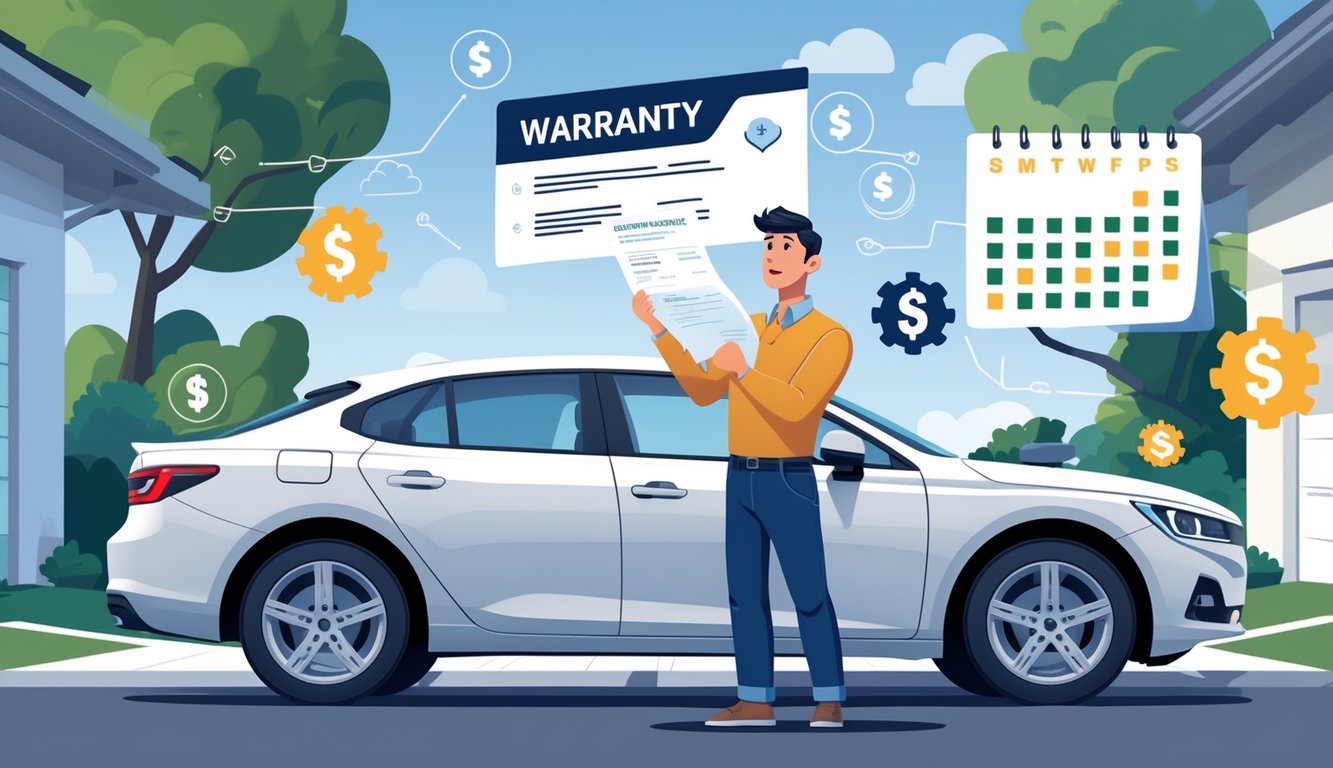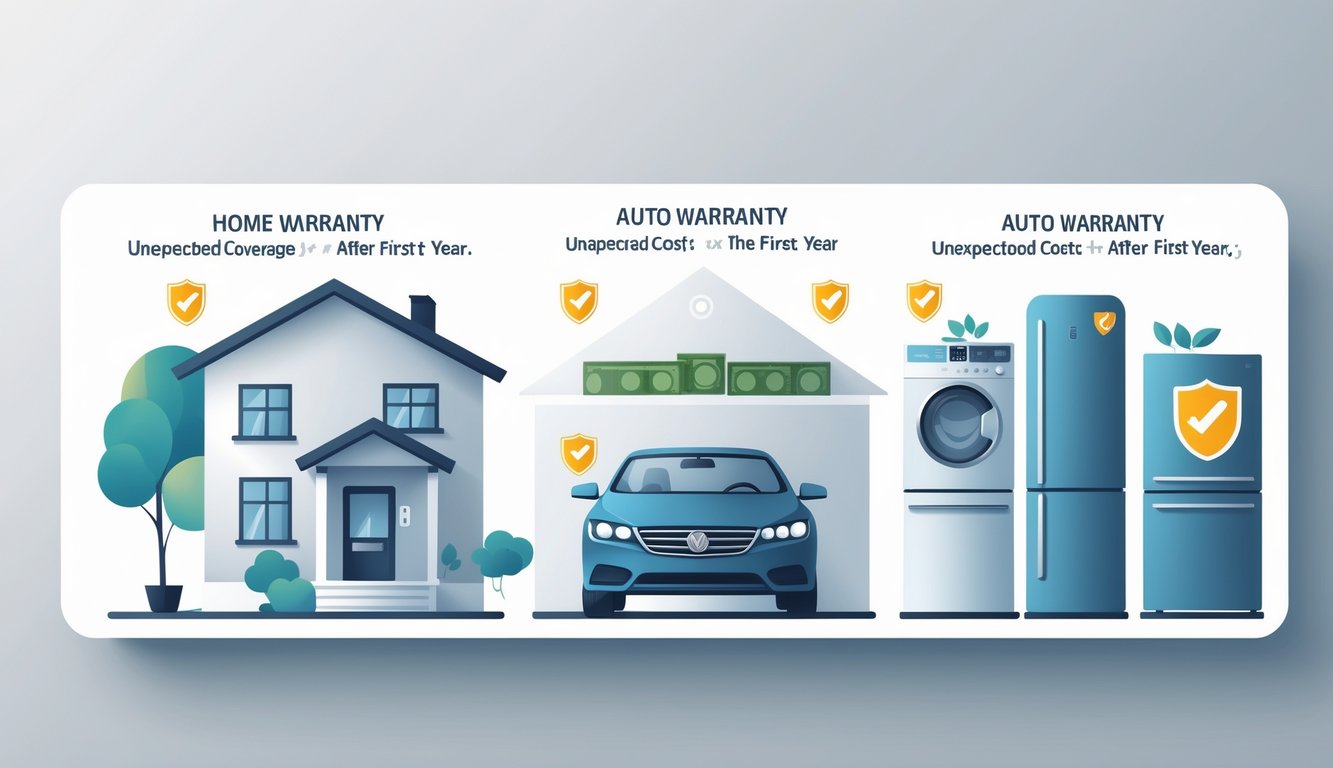
The Subscription Model: Are Extended Warranties Really a Good Deal?
Don’t even bother with the fine print—these subscription warranties morph every year, so “savings” is just a moving target. I keep getting stuck in auto-renewals, thinking I’m saving money, but the numbers and headaches just build up. Why do I fall for this?
Subscription Plans vs. Traditional Warranties
Can anyone keep up? My inbox is a graveyard of renewal emails—Endurance, CARCHEX, Omega Auto Care, all blurring together. Manufacturers like VinFast dangle those “long warranties” like candy. Monthly or annual subscription plans feel just like streaming: you forget you’re even paying until the charge hits.
Traditional warranties, yeah, they’re boring, but at least you know when they end. My neighbor switched to a subscription plan, and six months in, it only covered a cracked infotainment screen—nothing else. Consumer Reports (2025) says 42% of people with subscription models never even file a claim before the fees go up. And don’t get me started on canceling—impossible. At least the manufacturer warranty ends cleanly. No nonsense.
Recurring Costs and Value for Money
So, recurring charges—actual investment or just money down the drain? Every year, my payment climbs, like a gym membership I can’t quit. Omega Auto Care quoted me $47.99/month last March. That’s nearly $575 a year, and the coverage is somehow worse than old-school extended plans. Oh, and there’s always a $100-$250 deductible per claim, so if it’s a tiny fix, you basically pay the whole thing anyway.
A friend summed it up: “It’s like paying for breakfast every morning and getting a bagel once.” I mean, where’s the value? J.D. Power (2024) says out-of-pocket costs jump 20% after year one with most subscription providers. No wonder I’m suspicious. When you finally need a repair, turns out most plans won’t touch “wear and tear” stuff—tires, brakes, whatever. That’s a subscription “perk” I could do without.
Comparing Coverage: Home, Auto, and Appliance Warranties

Last year I tried to untangle this for myself—fell for the “all-inclusive” pitch. Spoiler: it’s not. Every warranty type hides its own headaches and weird price logic. You’d think “coverage” means the same thing for your fridge and your car, but nope. Not even close.
Differences in Cost Structures
Nobody warns you, but home warranties aren’t stuck at $40/month. Mine jumped 15% after the first renewal. Consumer Reports says 10-22% is normal. And the “service fee” isn’t tax—it’s every single call, $85 for my AC, $125 for a dishwasher. Both broke within a day, because of course they did. Car insurers? They just pile on fees at renewal time. National Association of Insurance Commissioners found premiums for auto contracts up almost 19% after a year, even if you never used it.
A friend in insurance (she’s seen it all) says the biggest rip-off is the midyear deductible shuffle. She showed me: $75 home visit, then after month 13, suddenly $110 and the rep just shrugs—“policy changes.” Appliance plans look cheap, but if repairs go over $500, good luck getting approval. Also, “pre-existing conditions”—like my fridge’s secret diary the insurer somehow reads.
Industry-Specific Surprises
Homeowners get smacked with “coverage gaps” most often, according to the 2024 U.S. Home Warranty Guide. Pipes, wiring, anything labeled “maintenance”—suddenly, not included. My neighbor upgraded her policy for HVAC, paid $79 more per year, and then found out refrigerant coverage maxed at $250. Her last leak? Double that. Lesson: never trust “thermostat included” unless you see it in writing.
Auto warranties? “Wear and tear” exclusions are brutal. Brake pads, rotors? Forget it. My own auto claim taught me that dealer-backed plans cap rental car coverage at $28/day—barely covers a bike. Appliance warranties? They love “functional components only,” so my oven’s cracked display wasn’t covered. I still remember the customer service call: “Is glass functional?” “Depends how much you use that part.” What does that even mean?
Market Factors: Inflation, Economy, and Property Prices
I can’t even look at my washing machine without thinking about repair bills. And, why did the price of replacement parts jump 18% in a year? The house next door is listed higher than my mortgage, which just adds to the anxiety. Sticker shock isn’t just for groceries anymore.
How Inflation Drives Costlier Repairs
How many times has an appliance tech just shrugged and said, “Blame inflation”? Too many. Consumer Price Index says UK core inflation hit 6.9% last year (ONS). It’s not just parts—it’s the “service call,” the screws, the little stuff. All of it jumps after year one, right when the basic warranty ends. People with “extended warranties” keep finding new exclusions, old price lists gone, new ones always higher. Labor, VAT, tariffs—piles up. Think warranty premiums just follow along? Try getting a boiler switch this year versus last. It’s a joke.
Rising Property Prices and Warranty Implications
Rightmove says July prices are down, but in my neighborhood? Agents act like every faucet is solid gold. Neighbor tells me her building warranty covered less than expected because property value soared, so the insurer “recalculated” and suddenly she’s on the hook. Premiums go up with property value, not what you paid. My broker confirmed it. Bought during the “mini-boom”? You’re probably getting hit with “indexation clauses.” I got a 15% hike just for living through a high-inflation quarter. The paperwork is so cryptic, I’m convinced they hide the formulas on purpose. Forums are full of people with claims limits that don’t keep up with real prices. Even Rightmove admits it’s a gamble.
